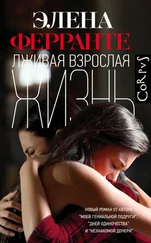We reached the third floor and instead of ringing—first surprise—Vittoria opened the door with her own key. She said aloud: it’s us, and there was immediately an enthusiastic shout in dialect— oh, I’m so glad —that announced the appearance of a small round woman, dressed all in black, with a beautiful face that, along with her blue eyes, seemed drowned in a circle of rosy fat. She welcomed us to the dark kitchen, introduced me to her children, two boys over twenty, Tonino and Corrado, and a girl, Giuliana, who could have been eighteen. She was slender, very beautiful, dark, wearing a lot of eye makeup, her mother must have looked like that as a young woman. Tonino, too, the oldest, was handsome, he had an air of strength but seemed very shy, he turned red just shaking my hand and barely spoke a word to me. Corrado, the only expansive one, seemed identical to the man I had seen in the photo at the cemetery: the same wavy hair, same low forehead, same lively eyes, same smile. When I saw on a kitchen wall a photo of Enzo in his policeman’s uniform, his pistol at his side, a photo much bigger than the one in the cemetery—it was in an ornate frame and in front of it a red light was burning—and noticed that he had a long trunk and short legs, that son seemed to me a living ghost. I don’t know how many silly things he said to me, in a relaxed, charming way, a burst of ironic compliments, and I was amused, I was pleased that he made me the center of attention. But Margherita found him impolite, she murmured several times: Currà, you’re rude, leave the child alone, and ordered him in dialect to stop it. Corrado was silent, staring at me with bright eyes, while his mother fed me sweets, the lovely Giuliana, with her full figure and vivid colors, said a thousand flattering things in a shrill voice, and Tonino overwhelmed me with quiet courtesies.
During that visit both Margherita and Vittoria often glanced at the man in the frame. Just as frequently they mentioned him, in partial phrases such as: you know how amused Enzo would be, you know how angry he’d be, you know how much he would have liked. Probably for nearly twenty years they’d acted like that, a couple of women recalling the same man. I looked at them, studied them. I imagined Margherita young, resembling Giuliana, and Enzo like Corrado, and Vittoria with my face, and my father—even my father—as he was in the photo that was locked in the metal box, the one where in the background you could read RIA. Certainly, on those streets there had been a pasticceria , a salumeria , a sartoria —pastry shop, grocery, dressmaker’s, who knows—and they had been passed by and passed again and had even been photographed, maybe before the young predator Vittoria took away from the beautiful tender Margherita the husband with wolf-like teeth, or maybe even afterward, during their secret relationship, and then never again, when my father had been the informer, and there had been only pain and fury. But time had gone by. Now both my aunt and Margherita had a calm, quiet tone, and yet I couldn’t help thinking that the man in the photo must have clutched Margherita’s buttocks exactly as he had clutched my aunt’s when she stole him, with the same skilled force. The thought made me blush to the point where Corrado said: are you thinking of something nice, and I almost shouted no, but I couldn’t get rid of those visions, and I went on imagining that there, in the dark kitchen, the two women had told each other countless times, in detail, acts and words of the man they had shared, and that they must have struggled before finding a balance between good feelings and bad.
Also that sharing of the children couldn’t have been entirely untroubled. Probably it wasn’t even now. I quickly noticed, in fact, at least three things: first, Corrado was Vittoria’s favorite and the other two were annoyed by that; second, Margherita was dominated by my aunt, she’d say something and then glance at her to see if she agreed, and if she didn’t Margherita took back what she’d said; third, all three children loved their mother, sometimes they seemed to protect her from Vittoria, and yet they had toward my aunt a sort of wary devotion, they respected her as if she were the tutelary divinity of their existence and they feared her. The nature of their relations became completely clear when, I don’t know how, it emerged that Tonino had a friend, Roberto, who had grown up there in Pascone and at around fifteen had moved to Milan with his family. But the young man would arrive this evening, and Tonino had invited him to sleep at their house. This made Margherita angry.
“What were you thinking, where can we put him.”
“I couldn’t say no.”
“Why? Do you owe him something? What favor did he do you?”
“None.”
“So?”
They argued for a while: Giuliana was on Tonino’s side, Corrado on his mother’s. All of them—I understood—had known Roberto for a long time; he and Tonino had been schoolmates, and Giuliana insisted passionately that he was a good, modest, very intelligent person. Only Corrado disliked him. He turned to me, correcting his sister:
“Don’t believe it, he’s a pain in the ass.”
“Wash your mouth out, when you talk about him,” Giuliana raged, while Tonino said aggressively:
“Better than your friends.”
“My friends will beat the shit out of him if he says things like he said the other time,” Corrado responded.
There was a moment of silence. Margherita, Tonino, and Giuliana turned toward Vittoria, and even Corrado broke off with the expression of one who would like to eat his words. My aunt took another moment, then she intervened in a tone that I didn’t yet know, threatening and at the same time pained, as if her stomach hurt:
“Who are these friends of yours, let’s hear.”
“No one,” Corrado said with a nervous laugh.
“Are you talking about the son of Sargente, the lawyer?”
“No.”
“Are you talking about Rosario Sargente?”
“I said no, it’s no one.”
“Currà, you know I’ll break every bone in your body if you so much as say hello to that ‘no one.’ ”
The atmosphere became so tense that Margherita, Tonino, and Giuliana seemed on the point of minimizing the conflict with Corrado themselves, just to protect him from my aunt’s anger. But Corrado wouldn’t give in, he went back to disparaging Roberto.
“Anyway he’s gone to Milan and has no right to tell us how we should behave here.”
Since her brother wouldn’t give in and so was being unfair to my aunt, too, Giuliana got angry again:
“You’re the one who should shut up, I could listen to Roberto forever.”
“Because you’re an idiot.”
“That’s enough, Currà,” his mother reproached him. “Roberto is good as gold. But, Tonì, why does he have to sleep here?”
“Because I invited him,” said Tonino.
“So? Tell him you made a mistake, the house is small and there’s no room.”
“Rather, tell him,” Corrado interrupted again, “that he shouldn’t show his face in the neighborhood, it’s better for him.”
Tonino and Giuliana, exasperated, turned to Vittoria at the same time, as if it were up to her to settle the thing one way or another. And it struck me that Margherita herself turned to her as if to say: Vittò, what should I do? Vittoria said in a low tone: your mother is right, there’s no room, let’s say Corrado comes to sleep at my house. The eyes of Margherita, Tonino, Giuliana lighted up with gratitude. Corrado instead scowled, tried again to denigrate the guest, but my aunt hissed: quiet. The boy made a gesture of raising his arms in a sign of surrender, but reluctantly. Then, as if he knew he owed Vittoria a more palpable gesture of submission, he went up behind her and kissed her repeatedly, noisily, on the neck and on one cheek. She, sitting next to the kitchen table, acted annoyed, said in dialect: Holy Madonna, Currà, how clingy you are. Were those three young people in some way her blood, too, and therefore mine? I liked Tonino, Giuliana, Corrado, I also liked Margherita. What a pity to be the last to arrive, not to speak the language they spoke, not to have true intimacy.
Читать дальше
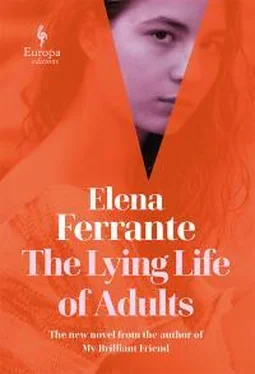
![Элена Ферранте - История о пропавшем ребенке [litres]](/books/32091/elena-ferrante-istoriya-o-propavshem-rebenke-litres-thumb.webp)
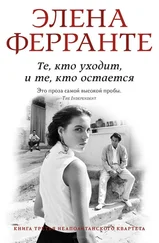
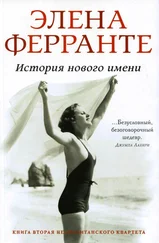
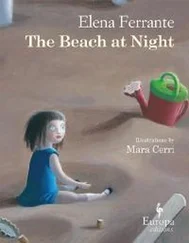
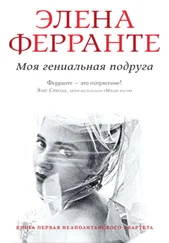
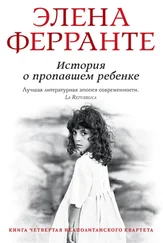
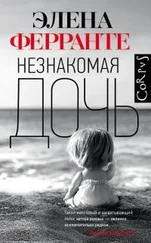
![Элена Ферранте - Дни одиночества [litres]](/books/404671/elena-ferrante-dni-odinochestva-litres-thumb.webp)

